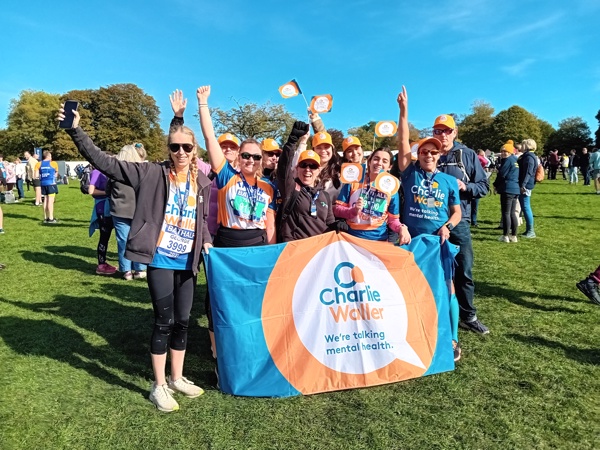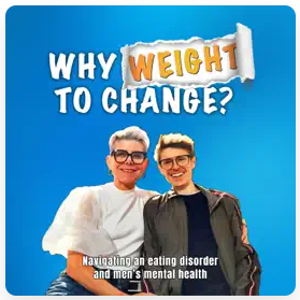Reflecting on privilege and mental wellbeing
June 08 2020

However, in spite of the fact that mental ill-health accounts for 28% of the overall disease burden, the Centre for Mental Health has identified that it receives just 13% of NHS funding. As a result of this lack of parity, the challenges in accessing help are well-known to anyone seeking support for mental health issues in the UK.
Speaking for myself, I have experienced a significant struggle in accessing support, which has been both distressing and incredibly frustrating. When struggling to get help, it is easy to focus on my own struggles and to simply focus on my own challenges – the idea that my status as a middle-class white male places me in a position of privilege is not the first thing that springs into my mind. However, the more that I learn and the more that I read, the more I recognise that this is an issue that needs to be addressed.
In the UK, black, Asian and minority ethnic (BAME) people are less likely to voluntarily access mental health services but are far more likely to be detained under the Mental Health Act. A study of young people using Kooth, an NHS funded online counselling service, found that BAME young people were far more likely to access the service but were far less likely to access face-to-face services. Although this is in many ways a positive reflection of the changes to services to make them more accessible to young people, it also raises questions about why BAME young people are uncomfortable seeking support that will require them to identify themselves.
The first instinct is to look at factors that might lead to BAME people feeling less able to seek help. The Mental Health Foundation has put together an overview of these factors including experiences of racism and discrimination, higher rates of poverty, unemployment and homelessness and stigma towards mental health issues within some BAME communities. It has also been observed that BAME people are underrepresented in the field of mental health, including a lack of research being undertaken to better understand their needs. Does this tell the full story?
Seeking help for mental health issues is not an easy or comfortable experience. The need to open oneself up emotionally can often make one feel extremely vulnerable, and it is well established that for men, there are still associations between mental ill-health and being ‘weak’. None of what I am saying here is intended to disregard the issue of higher suicide rates in males than females, and there is much to be done to address the fact that many men struggle with a fear of being seen as ‘weak’ for seeking support. However, as a white man I have never once felt that there was a risk that an NHS worker would disregard what I had to say because of my race, or label me a certain way because of my cultural background. I am also protected and privileged because of my education background and also, for want of a better word, my class. It has been demonstrated that “suicide rates are higher among young men of Black African, Black Caribbean origin, and among middle-aged Black African, Black Caribbean and South Asian women than among their White British counterparts”.
Reflecting upon my own privilege has not been a straightforward process – when seeking help I have not felt in control or powerful, but the more I think about it, the more I recognise that in many ways I am in a much more comfortable starting position. In her seminal essay ‘White Privilege: Unpacking the Invisible Knapsack’. Peggy McIntosh made the striking observation that growing up she “had been taught about racism as something that puts others at a disadvantage, but had been taught not to see one of its corollary aspects, white privilege, which puts me at an advantage” (McIntosh, 1988). When looking at the factors that lead to BAME people being less likely to access mental health services, it is not enough to look solely at these factors, but it is also important to look at factors of privilege.
Privilege for white males has been defined in a recent article as “an entitlement and unearned authority of white men to engage in attitudes, beliefs, and practices in any place and time, to perpetuate the status quo” (Liu, 2017). This can be an uncomfortable area for reflection, and I fully recognise that many people will find this a challenging topic. As a white man living with borderline personality disorder, I have experienced periods of emotional distress that have led to disruptive and damaging behaviour. However, when I reflect upon these episodes, I honestly believe I would have been seen in a different light had I not been a well-spoken white man, and my actions seen as a more significant issue. A higher proportion of compulsory detention for BAME men would suggest my feelings are justified.
One of the most powerful things I have read during the COVID-19 lockdown is a phrase quoted on twitter – ‘We are not all in the same boat. We are all in the same storm, but some of us are in mega-yachts and others are in holed rowing boats, with everything in between’. This is something that I feel also applies to living with a mental health condition – different people can experience the same illness or disorder, but depending on their societal status, income, family or community support, different people will be better prepared to weather the storm. This is not to say that privilege automatically protects us from being affected by mental health issues. Indeed, it can be argued that being privileged can mean we become complacent, and our level of resilience is lower – to use the boat analogy, when you are in a luxury yacht would you be able to cope if the power failed? In comparison, being on a holed rowboat you may well become stronger due to constantly having to bail out the water.
In writing this article, the intention is in no way to belittle anybody’s experiences, or to suggest that this is a straightforward issue. Positive steps are being taken to improve mental health services for BAME people, and to listen to BAME people’s views about what needs to change. However, it is also important for white British people to think critically about our status and to engage with service providers to ensure treatment provision is truly fair and representative. Although this will not be a quick process, this does not mean it is impossible.
References
BAME in Mind (2019) ‘BAME and the Mental Health Sector’.
Bulman, M. (2017) ‘Non-white children are less likely to access traditional mental health services, report finds’, The Independent.
Haynes, L. (2019) ‘How treatment of ethnic minority groups in mental health system can be improved following independent review’.
Institute for Race Relations, ‘Health and Mental Health Statistics’.
Liu, W.M (2017) ‘White Male Power and Privilege: The Relationship Between White Supremacy and Social Class’, Journal of Counseling Psychology, 64(4)
McIntosh, P. (1988) ‘White Privilege: Unpacking the Invisible Knapsack’. In Cyrus, V. (Ed.), Experiencing race, class, and gender in the United States (pp. 209–213). Mountain View, CA: Mayfield Publishing.
Mental Health Foundation (2019) ‘Black, Asian and Minority Ethnic (BAME) communities’.
The Week (2018) ‘Fact Check: The truth about mental health funding’.
Turner, E. (2019) ‘Mental Health Among Boys and Men: When Is Masculinity Toxic?’.
Related
Popular
Upcoming event

Join us for the Bath Half Marathon to support young people and their mental health!

The Charlie Waller Trust
The Charlie Waller Trust is a registered charity in England and Wales 1109984. A company limited by guarantee. Registered company in England and Wales 5447902. Registered address: The Charlie Waller Trust, First Floor, 23 Kingfisher Court, Newbury, Berkshire, RG14 5SJ.
Copyright © 2025 The Charlie Waller Trust. All rights reserved.






